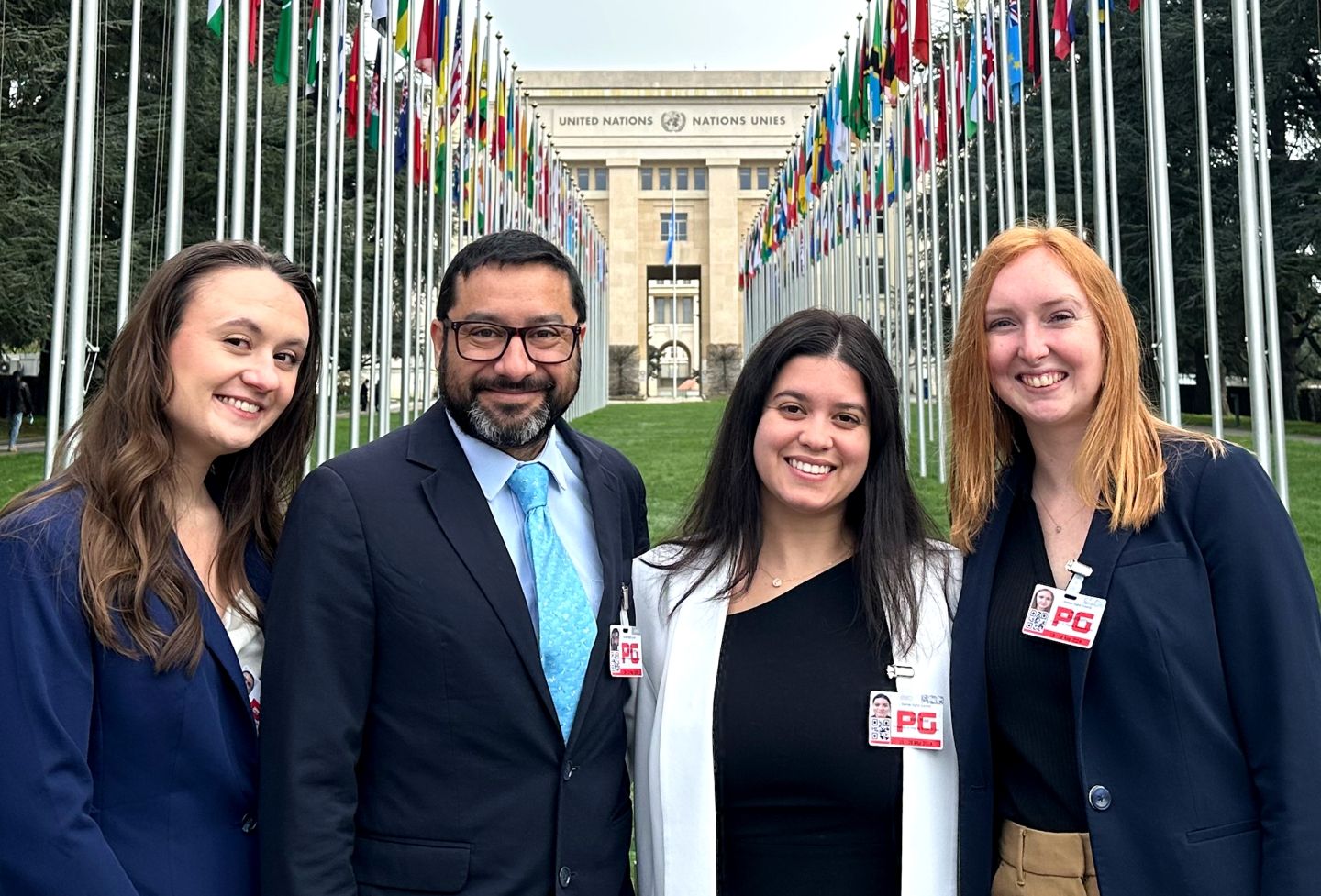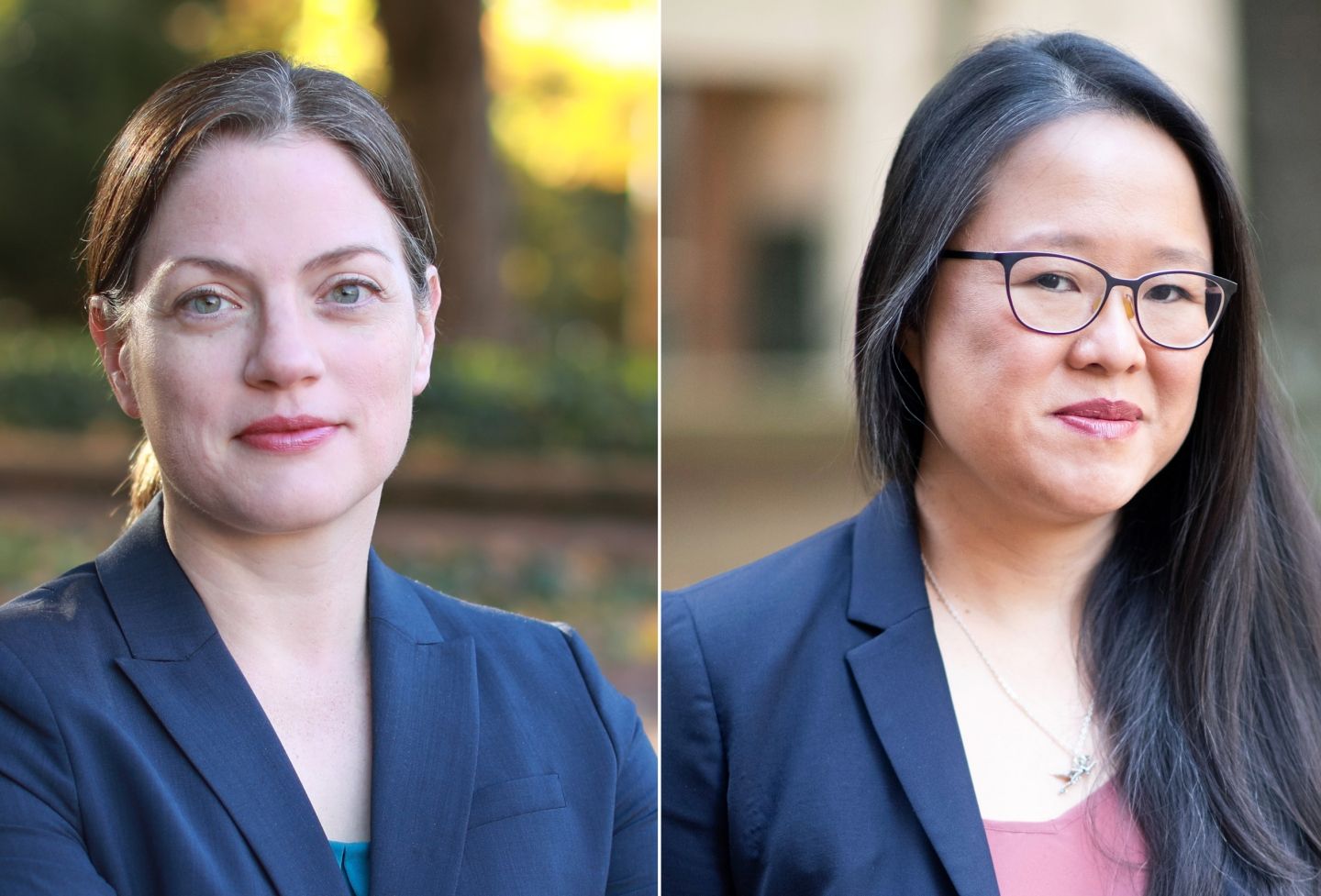A team of University of Virginia School of Law students will defend the school's title in an international humanitarian law competition in Charlottesville the week of March 30. The final round, which is open to the public, will be held April 3 at 3:30 p.m. in Caplin Auditorium at the Law School.
About 50 teams from around the world — including several from schools dedicated entirely to the study of international humanitarian law — will compete in the Jean-Pictet Competition. Last year's UVA Law team, aided by mentors from the Judge Advocate General's Legal Center and School, won the competition in Sintra, Portugal, in only the second year the school sent a team to compete.
This year's team, comprised of Tawnie Gulizia '15, Stephanie Malaska '16 and Brooklynn Moore '16, is also benefiting from the help of JAG School coaches and professors, as well as UVA Law faculty.
UVA Law professor Tom Nachbar, the team's faculty adviser, said the competition has not been held in the United States in several years; the choice of Charlottesville as the location was influenced by last year's win by UVA Law.
"This competition is different than moot court competitions, in that it's scenario-driven," Nachbar said. "There will be a background scenario about a conflict and the team will be given specific problems to address about that scenario."
The competition tests students' knowledge of the law of armed conflict and international humanitarian law, and the teams' ability to form an argument and apply the law in a wide range of situations. It requires competitors, in teams of three, to role-play with as little as 10 minutes to prepare for the specific scenario. The fictional scenarios themselves come from any corner of international humanitarian law, but current events often inspire topics.
From a field of more than 100 teams, results of essay submissions helped narrow the field to the approximately 50 teams that will be competing in Charlottesville. Two sets of semifinals will be held, both in French and in English. The final round, which will more closely model a moot court, will be a dual-language round, complete with translators. U.S. Special Adviser on the Prevention of Genocide Adama Dieng will give a keynote lecture at 2 p.m. in the auditorium.
"I'm excited to meet the other teams," Gulizia said. "It will be interesting for me to spend time with them since I want to work in international law to see their perspective on the issues we're studying here."
To prepare, teams are given example scenarios and training documents on topics like international armed conflicts, occupations, civil peace-keeping and terrorism.
"The subject matter is so broad, we have to brush up on as much international humanitarian law as we can," Malaska said.
Preparation has largely been a team effort. The Law School offers numerous classes on the law of armed conflict and the students have been meeting various UVA Law professors to discuss articles, topics and strategy.
But to round out their knowledge, the students are taking elective classes at the JAG School, which is located adjacent to the Law School, and working with JAG faculty.
"The Judge Advocate General's Legal Center and School enjoys a close relationship with the UVA School of Law and takes pride in its outreach efforts, including the coaching of UVA's Pictet team," said Maj. Jason DeSon, one of the coaches helping them prepare.
"Our coaching effort focuses on preparing the team for the competition's twofold challenge of testing 'theoretical knowledge' and 'practical understanding' of the law of armed conflict by not only teaching substantive law, but also imparting our experience in applying that law in current and past military operations," DeSon said.
"Students had access to the same materials and scenarios used to prepare military lawyers from all armed services for their role in ensuring that the United States complies with LOAC in all military operations."
In addition, Gulizia, Malaska and Moore say they have a standing meeting three to four days a week in which they discuss materials and work through questions.
"We work on material together, but we split things up, too. When we split things up, we make notes for everyone else," Moore said.
Each team member has taken different classes, and they say they're finding that variety is an asset. Gulizia is knowledgeable about international human rights, Moore is interested in national security and Malaska is focused on intelligence.
"It's been really nice to be around other students who have similar interests as me. It gives us an opportunity to have conversations about the subject matter and career goals," Gulizia said.
Founded in 1819, the University of Virginia School of Law is the second-oldest continuously operating law school in the nation. Consistently ranked among the top law schools, Virginia is a world-renowned training ground for distinguished lawyers and public servants, instilling in them a commitment to leadership, integrity and community service.


